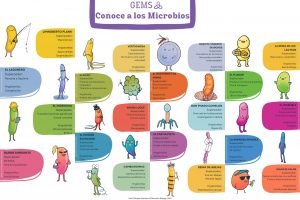Our group is involved in a number of activities dedicated to engaging the citizens of Champaign-Urbana and broadening participation in biology. Here are a few of the projects we have:
GEMS Symbiosis Institute:
In collaboration with Barbara Hug and the rest GEMS, our group participates in multiple education-research integration activities. For example, Meghan Blaszynski (Graduate student in the department of Plant Biology) and Chloe Yates (Masters student in the College of Education Curriculum and Instruction program) are running a pilot study to grow clover with rhizobia in a classroom setting with publicly available materials. This hands-on activity is designed to compliment the high-school level unit that Chloe is developing where she adapts Meghan’s active research for the classroom.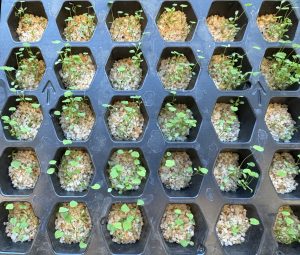
Genome Day and World of Genomics:
The World of Genomics, presented by the Carl R. Woese Institute for Genomic Biology (IGB), brings the full scope of our research in health, technology, and the environment to the public with hands-on activities and exhibits for all ages, designed to make the broadest impact on the largest audience
Genome Day is an afternoon of learning about genomes, genes, DNA, and evolution at a local Champaign-Urbana venue. At this free event, Illinois scientists offer activities related to genomics, including learning how organisms relate to each other on the Tree of Life, extracting strawberry DNA to make necklaces, and understanding how genomics pervades every aspect of our daily lives.
-Carl R. Woese Institute for Genomic Biology
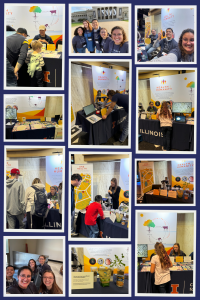
At the World Of Genomics event in 2024, a group of labbies traveled to the Museum of Science and Industry to volunteer! They spent the weekend engaging with the public and having a good time.

At 2024 World of Genomics this fun response was left in response to our table
Carl R. Woese Institute for Genomic Biology postdoctoral fellow Rebecca Doyle has developed Last Microbe Standing, a board game about mobile elements and evolution in microbes. She ran the game at two major IGB outreach events, including WoG in DC in 2019! Together with IGB designers Julia Pollack and Jillian Nickel, we worked up some cute cartoons to enhance our displays at the event, including this one featuring our favorite guy, the Fixer:
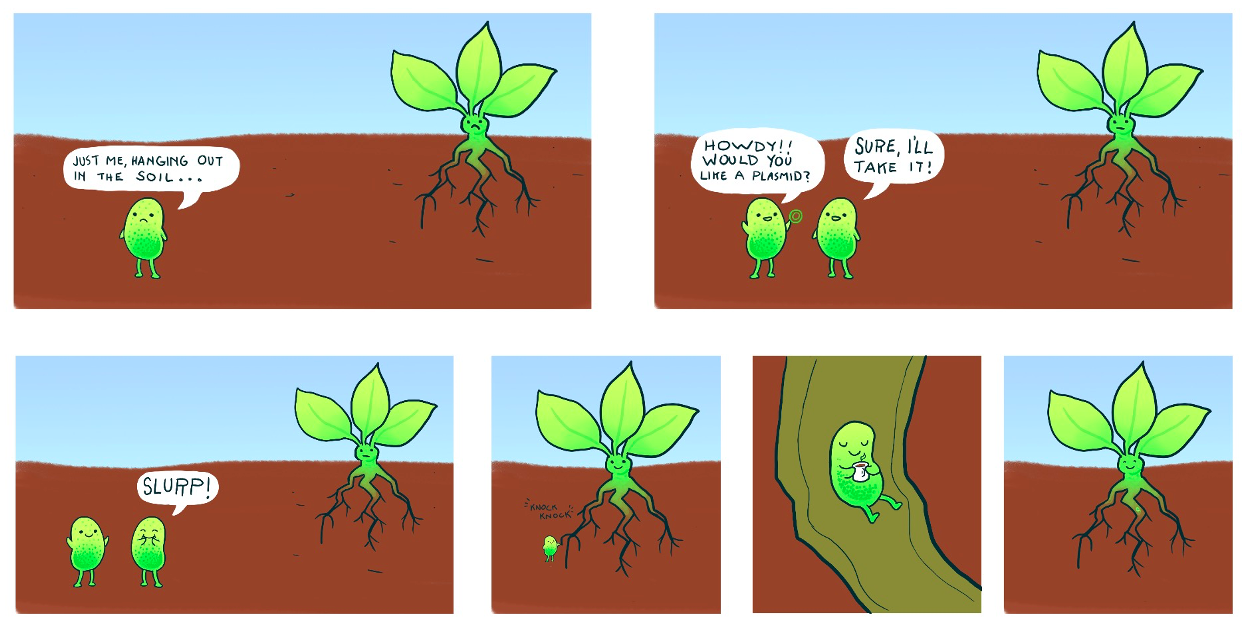
The Fixer is only one of the microbes which is studied at GEMS! Some of his friends can be found here:
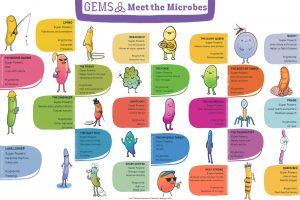
Cena y Ciencias:
Ivan Sosa Marquez is working as part of “Cena y Ciencias” and in collaboration with SACNAS, 4-H and other folks at the University of Illinois. Together with, GEMS fearless leader Rachel Whitaker and Heath labbies David Vereau Gorbitz and Mario Ceron Romero they all aim to provide science education to local kids and families in Spanish.
The purpose of Cena y Ciencias is to bring Hispanic families (specifically children) role models in science. They use exciting experiments created by experts in many collaborating labs and institutions on U of I and beyond.
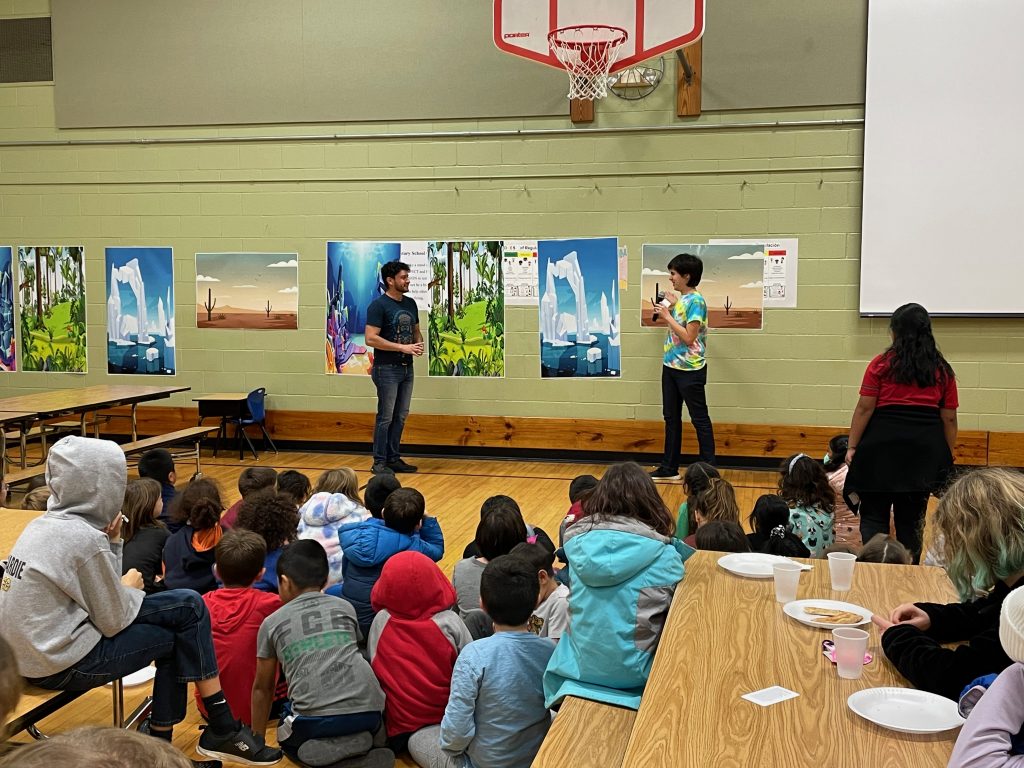
Developing K-12 curriculum materials aligned with Next Generation Science Standards:
Karla Griesbaum, in collaboration with Barbara Hug (UIUC Curriculum and Instruction) has been working on developing a lesson plan for elementary students grades 5th-8th that uses hands-on discovery, student origination of experimental design, and trial-and-error based science that promotes not only big ideas that stick, but also grows a love for science and exploration. This specific lesson is based off the NGSS unit of Ecosystems: Interactions, Energy, and Dynamics. The students will be exploring plant-fungal interactions and lead them to develop their own questions and means to answer those questions.
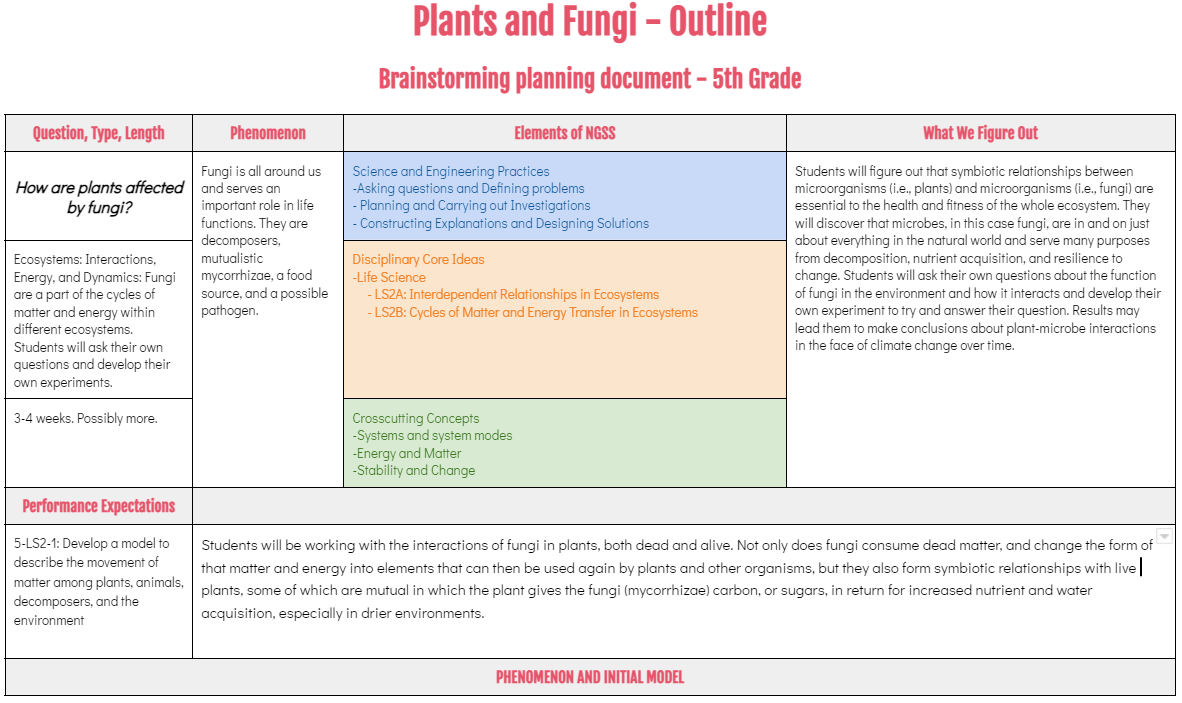
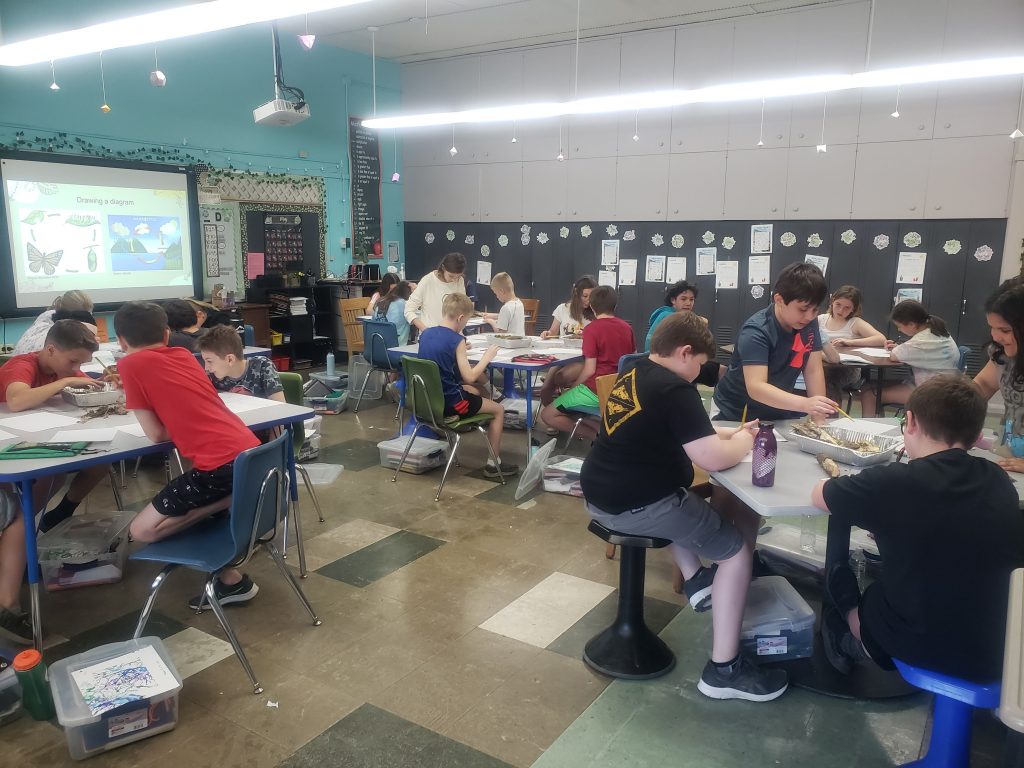
Each June: Campers Explore Biology!
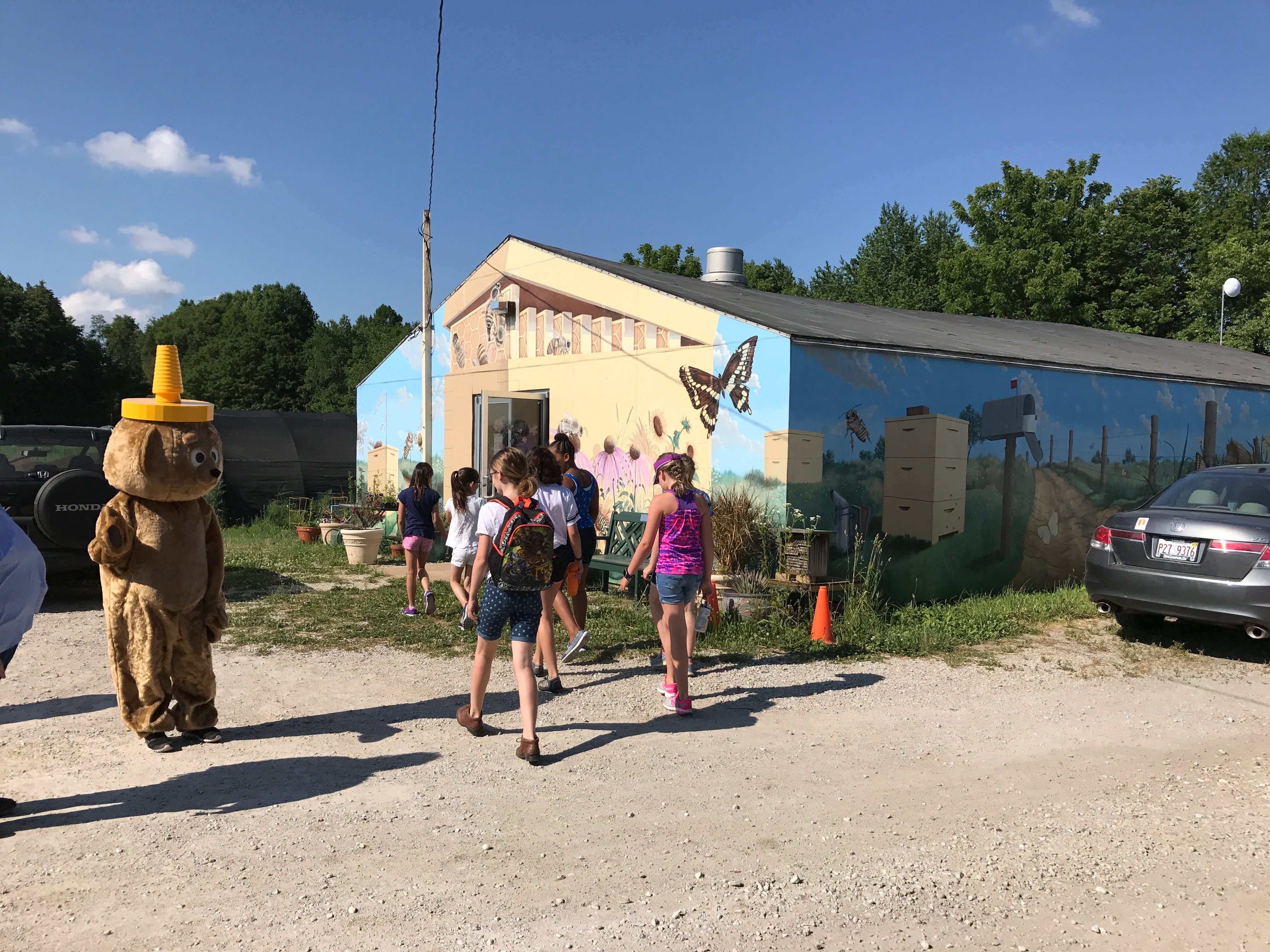
Together with Carla Caceres and Alex Harmon-Threatt, Katy runs a week-long summer camp for middle-school girls, in partnership with Katie Hicks and the Champaign Park District.
Arctic ecology teacher workshop Summer 2017:
Barbara Hug, Feng Sheng Hu, Jonathan Greenberg, and Bo Li worked collaboratively with graduate students to organize and led a 3-day teacher workshop. Classroom modules addressing Next Generation Science Standards were developed based on our research approaches (e.g., upcoming Fernandez et al. paper on using genetics to reconstruct species histories). Topics and activities draw on the fields of genomics, phylogeography, ecosystem ecology, species distribution modeling, and statistics. Using all of these, they focus on how plants are responding to global change.
Integrative Biology IB546: Amplify the Signal:
Katy and collaborator Elizabeth Bagley developed this graduate course on broader impacts, outreach, and science communication course (hopefully she can teach this again soon). Last time, we focused on writing written and recorded pieces about graduate research in SIB for the local Champaign-Urbana community. We also ran a Biodiversity Day at the Orpheum Children’s Science Museum. See the news article here for more info.

